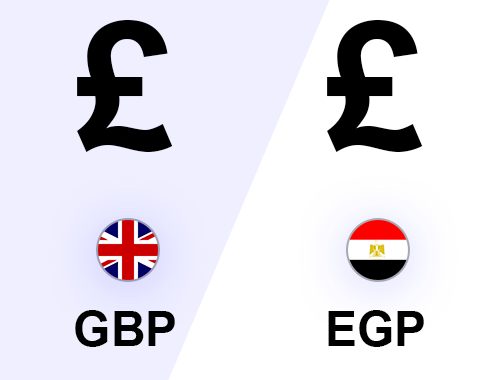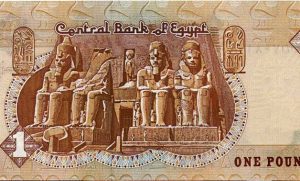
Egyptian Pound to Sterling
Understanding the Exchange Rate: Egyptian Pound to Sterling
Egyptian Pound to Sterling:
Traveling to Egypt or doing business with Egyptian entities? One of the first things you’ll want to understand is the currency exchange rate between the Egyptian Pound (EGP) and the British Pound Sterling (GBP).
While currencies fluctuate daily due to various factors, getting a grasp of how the Egyptian pound compares to the British pound will help you plan your budget effectively.
What Is the Egyptian Pound?
The Egyptian pound (EGP) is the official currency of Egypt and is abbreviated as “LE” or sometimes “E£” for shorthand. Historically, Egypt used the piastre and continues to use it today as a subunit of the Egyptian pound. One Egyptian pound is made up of 100 piastres.
Symbol: EGP or £E
Subunit: 100 piastres = 1 Egyptian pound
Egypt has a strong cultural heritage, and their currency reflects this in the design. Banknotes often depict ancient monuments like the pyramids, mosques, or significant historical figures. Whether you’re buying goods in the marketplace or paying for tickets to a museum, you’ll use the Egyptian pound throughout your trip.
What Is the British Pound Sterling?
The British pound sterling (GBP), also known as “pound” or “quid” informally, is one of the world’s oldest and most traded currencies. It is primarily used in the United Kingdom, including England, Scotland, Wales, and Northern Ireland. The pound is symbolized by the familiar “£.”
Symbol: GBP or £
Subunit: 100 pence = 1 pound
With its robust economy and global financial influence, the British pound is often seen as a strong and stable currency. This makes it a preferred choice for people looking to exchange Egyptian pounds for British pounds when traveling or doing business internationally.
Understanding Exchange Rates: Egyptian Pound to Sterling
Exchange rates represent how much one currency is worth in terms of another. In this case, the Egyptian pound (EGP) to British pound sterling (GBP) exchange rate reflects how many Egyptian pounds you need to get one British pound. For example, an exchange rate of EGP 40 = GBP 1 means you would need 40 Egyptian pounds to exchange for one British pound.
Exchange rates fluctuate based on a number of factors:
- Economic health of both countries.
- Political stability or unrest.
- Inflation rates in either country.
- Supply and demand for currencies in the global market.
How to Check the Current Exchange Rate
To find the current exchange rate, you can:
- Online Currency Converters: Websites like XE.com, Google Finance, or OANDA allow you to input the amount of Egyptian pounds and see its equivalent in British pounds instantly.
- Banks and Financial Institutions: Your local bank or financial service provider often provides updated exchange rates, although they may charge a fee or offer slightly different rates than those listed online.
- Currency Exchange Booths: When traveling, you’ll see these in airports or in major tourist areas. Be cautious, as their rates can sometimes be less favorable than what you’d find elsewhere.
Factors Affecting the Egyptian Pound to Sterling Exchange Rate
Exchange rates aren’t static; they fluctuate due to various factors. Here are some key reasons why the Egyptian pound’s value changes against the British pound:
- Tourism: Egypt’s tourism industry has a significant impact on its economy. When tourism booms, more people buy Egyptian pounds, potentially raising the value of the currency.
- Trade Relations: Imports and exports between Egypt and the UK can influence the demand for both currencies. For instance, if Egyptian exports are in high demand, it could strengthen the pound.
- Political Stability: Political events like elections or international relations can lead to changes in currency strength. A stable political environment is more likely to create a stable currency.
- Economic Policies: Central banks in both Egypt and the UK may influence exchange rates through their monetary policies. This includes interest rate changes and measures to combat inflation.
- Natural Disasters or Global Events: Global events like the pandemic or regional conflicts can cause uncertainty in financial markets, leading to fluctuations in exchange rates.
Tips for Getting the Best Exchange Rate
If you are looking to get the best possible rate when converting Egyptian pounds to British pounds, here are some helpful tips:
- Monitor Exchange Rates Regularly: Exchange rates fluctuate, and by keeping an eye on them, you can exchange your money when the rate is most favorable. Online tools can notify you when rates reach a certain point.
- Use Credit or Debit Cards: Some travelers opt to use international debit or credit cards. However, check if your bank charges foreign transaction fees, as these could add up quickly.
- Avoid Airport Currency Exchanges: Currency exchange booths at airports often have less favorable rates. If possible, exchange your money before your trip or find a local exchange provider in the country.
- Check for Hidden Fees: Many currency exchange services will advertise a “no fee” or “zero commission” service, but they may adjust the exchange rate in their favor. Always double-check the actual rate and fees.
- Consider Traveler’s Checks: Traveler’s checks are another option if you want to avoid carrying large amounts of cash. Some banks offer more favorable rates for these, but ensure they’re widely accepted at your destination.
Should You Exchange Money Before or During Your Trip?
This is a common question for travelers. Exchanging some cash before your trip is always a good idea for immediate expenses like transportation or meals. However, you may find better exchange rates when you are in Egypt. Using ATMs in Egypt to withdraw Egyptian pounds directly is another option. Just ensure your bank offers reasonable fees for international withdrawals.
Currency Conversion Scenarios
Here are a few common scenarios where you might need to convert Egyptian pounds to British pounds:
- Tourism: If you’ve visited Egypt for a vacation, you may find yourself with leftover Egyptian pounds. To avoid ending up with unusable currency, it’s best to exchange what you have left before returning home.
- Business Transactions: If you conduct business with Egyptian firms or suppliers, you’ll frequently need to convert currencies. Monitoring the exchange rate is essential for maximizing your profit margins.
- Studying Abroad: Many students from Egypt choose to study in the UK. Whether for tuition fees or living expenses, understanding the exchange rate can help them manage their money better.
Conclusion
Whether you’re planning a trip to Egypt, conducting business, or simply interested in global currencies, understanding the Egyptian pound to sterling exchange rate is essential. By knowing where to find the best rates,
being mindful of hidden fees, and timing your exchanges, you can make your money go further. Keep an eye on global events, political climates, and economic policies, as these will all have an impact on the rates you receive.
With these tips in mind, you’ll be well-prepared for any currency exchange you may need in the future!
